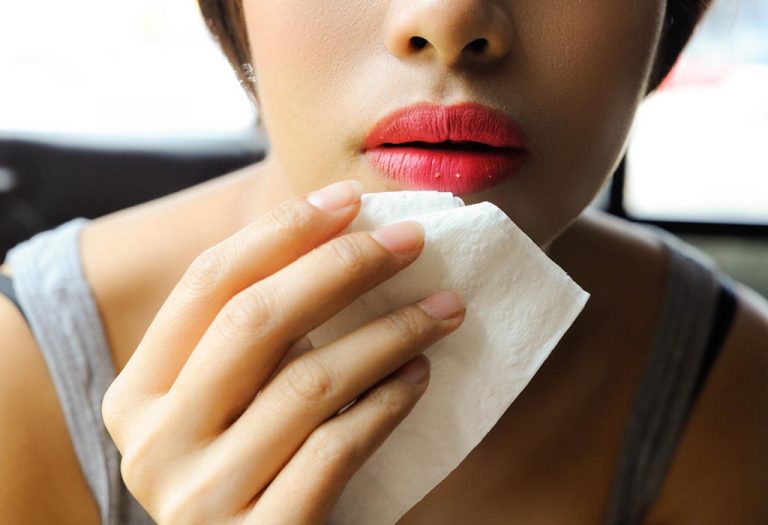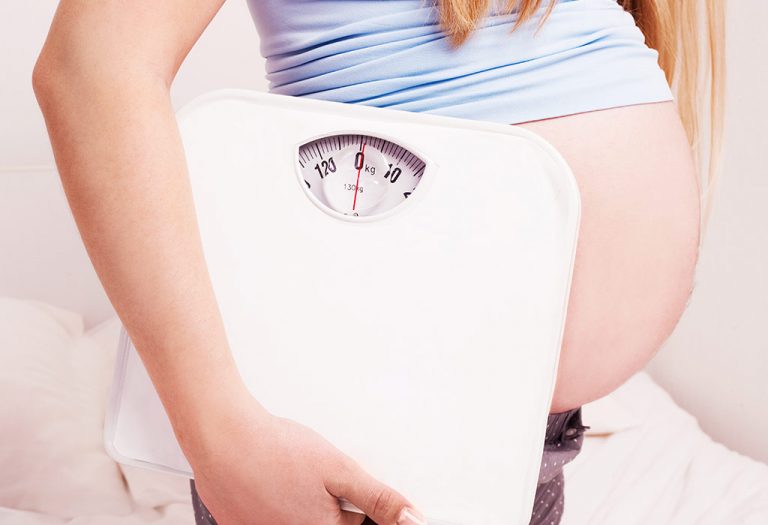Pregnancy Body Odour – Causes and Remedies
Understand why body odour changes during pregnancy and learn simple, safe remedies to stay fresh and comfortable

- What Causes Body Odour During Pregnancy?
- How Early Should You Expect Increased Body Odour in Pregnancy?
- Tips for Getting Rid of Pregnancy Body Odour
- When to Consult a Doctor?
- FAQs
Pregnancy changes your hormonal levels drastically, and they, in turn, impact your sensory functions and emotions. With a change in your basal metabolic rate and increased blood supply to all parts of your body- armpits, vagina, uterus and pretty much everywhere your glands work overtime. You may suddenly find yourself not feeling as fresh as a daisy anymore. Pregnancy also turns your nose into that of a bloodhound, and you may not get over the foul odour your body emanates. Body odour during pregnancy can make you feel really conscious and embarrassed. Hormones play truant during lactation, too, and cause a pungent odour, especially at the genitals and armpits. But then again, body odour in pregnancy is very common.
What Causes Body Odour During Pregnancy?
Estradiol is a hormone that increases during pregnancy, resulting in a heightened sense of smell. It is easy to deal with odours coming from outside, but the foul smell that emerges from your own body could be intolerable. Understanding the underlying reasons for the bad-smelling odours could help with coping with them. Read on to find out the primary reasons for strong body odour during pregnancy
1. Hormonal Change
With a drastic change in the hormonal levels in the body, especially with increased quantities of estradiol, your body produces a strong smell. Hormones are the main reason for the pungent odour. The main areas that hormones affect are the genitals and armpits, which is why underarm odour during pregnancy is most common among expectant mothers.
2. Excessive Sweating
During pregnancy, the body temperature rises, and pregnant women generally have a low tolerance for heat. The additional weight that you carry makes you sweat more, even on cold days. Sweat glands in pregnant women become hyperactive due to hormonal changes and intensify body odour (1). The sweat is odourless; however, when it settles on the skin, it creates an atmosphere for bacteria to thrive, causing bad body odour during pregnancy. Along with pregnancy hormones, thyroid hormone changes during pregnancy can also make a pregnant woman feel warmer (2).

3. Increased Sensitivity
With the increase in the level of hormones, pregnant women experience different cravings and sensations. Your sense of smell will be heightened, and you may find yourself cringing at the slightest of whiffs, occasionally to the point of throwing up (3). It may be quite likely that people around you have not noticed the odour, but you have. Blame it on your increased sensitivity to things.
4. Preparation for Breastfeeding
When you are pregnant, your body is preparing for lactation. Remember that your little one will take some time to develop proper hearing and vision, and until then, it is their keen sense of smell that will help them recognise things. Your baby will recognise you by your smell, and it is but natural that a strong odour will draw your baby closer to you. Your smelly armpits would encourage your baby to swirl their head in the direction of your breasts to feed naturally.
5. Change in Diet
Healthy food is an integral part of pregnancy, and most expectant mothers eat a variety of nutritious foods. Certain foods cause changes in body odour. Red meat has amino acids that cause sweat to smell a certain way for a couple of hours or even for days. Seafood affects not only the odour of sweat but also vaginal discharge. Vegetables like broccoli, cabbage, and cauliflower contain sulphur that is absorbed in the bloodstream (4). This erupts as sweat on the surface of the skin, which mixes with bacteria, resulting in a foul odour. Some medications that you take will also cause a change in body odour.
High-choline foods, including beef, eggs, chicken, soybeans, and seafood, produce fishy body odour as well as excessive sweating (5).
Most often, it is only you who can sense this odour owing to your heightened sense of smell. Do not worry about reactions from others. However, if you experience any vaginal secretions that have a strange colour or odour, contact your doctor.
How Early Should You Expect Increased Body Odour in Pregnancy?
An increase in body odour in pregnancy can happen at any time during pregnancy, depending on the cause. Early pregnancy body odour in the first trimester may occur due to increased olfactory senses, while increased blood supply may contribute to increased body odour in the second trimester as the third trimester. Weight gain in the third trimester can cause sweat to settle down in the folds and lead to body odour as well.
Tips for Getting Rid of Pregnancy Body Odour
Stinky or smelly armpits during pregnancy are usually harmless, but it can still feel uncomfortable when you’re already juggling so many changes. With a few simple habits, you can stay fresh and feel more at ease in your own skin.
- Bathe at least twice daily: Shower or take a bath at least twice daily. Try using an antibacterial soap to kill the bacteria that cause bad odour. Wipe yourself dry with clean towels (6).
- Keep your skin fresh: Try using home remedies like when taking a shower, keep a container with some water and squeeze a few drops of lemon. After using this concoction, rinse with water in another container with a bit of honey. This combinations leaves the skin smooth and helps the skin remain fresh for long. If you are taking a bath, add a bunch of mint leaves as the aroma will be rejuvenating.
- Shampoo regularly: Wash your hair with shampoo at least three times a week. Spray some perfume on your comb or brush so that it lends the scent to your hair every time you run it through. Keep your comb clean and dry at all times.
- Stay trimmed and pruned: Hair in the genitals and underarms can accumulate sweat and trap bacteria on the skin. Keep it trimmed so that it does not produce sweat that will lead to bad odour.

- Use a deodorant, antiperspirant, or powder: To smell fresh, apply deodorant or talcum powder to your underarms. If you sweat profusely, use an antiperspirant, as it will be more effective. Make sure that you carry it with you wherever you go. Deodorants don’t stop you from sweating; they simply help you smell nice.
- Wear loose and breathable clothes: Wear fabrics like linen and cotton, which are more breathable. Avoid wearing the same clothes and wash them after one use. Add ¼ cup of white vinegar to your laundry in the rinse cycle. You could also try washing your clothes separately and adding a fabric conditioner to get them to smell fresh. If your undergarments smell bad, soak them in a solution of ¼ cup of white vinegar and 1 cup of water for 15 minutes before washing them.
- Stay hydrated: Drink fluids to control body odour. Water flushes out all toxins from your body and keeps your system clean.
- Eat right: Avoid eating onions, garlic, and red meat in excessive amounts. Stick to fruits and green vegetables, as these will reduce body odour and will also benefit the foetus.
When to Consult a Doctor?
Although sweating during pregnancy is a common occurrence, the following situations warrant a doctor’s consultation (6):
- Excessive sweating with panting
- Sudden change in body odour
- Continuously damp skin from sweating
- Finding the body odour intolerable
- A bleach or fruit-like body odour
- A rash or redness of the skin due to sweating
FAQs
1. Is body odour an early pregnancy sign of pregnancy?
A heightened sense of smell is known to be an early pregnancy symptom (7). A heightened sense of smell can make a woman feel increased body odour during the first trimester of pregnancy.
2. What foods can help reduce body odour during pregnancy?
According to anecdotal evidence, fibre-rich foods, leafy greens, and citrus fruits may help reduce body odour.
3. Does armpit odour in pregnancy indicate any underlying medical issue?
Body odour during pregnancy without accompanying symptoms is normal. However, if the body odour occurs with a fruity smell, it may indicate health issues like diabetes (6).
4. Can body odour during pregnancy predict the gender of the unborn baby?
No, the claim is false and is not true. Predicting gender with body odour during pregnancy is an old wives’ tale.
5. Will body odour go back to normal after pregnancy?
For most people, yes. As hormone levels drop after birth and breastfeeding ends, your natural scent usually returns to its pre-pregnancy pattern.
Pregnancy and body odour often go hand in hand as shifting hormones change the way your body smells. Even after maintaining an impeccable standard of personal hygiene and eating right, you may experience severe body odour. In such circumstances, make sure to consult your doctor. Your doctor may suggest some medicated soap or make a few changes to the medications that you might be taking. Remember that your body odour will never harm your baby, and more often than not, it is only you who will be able to smell it. The methods mentioned above are the safest ways to get rid of body odour and maintain personal hygiene. So go on and try them, and don’t fret too much as it is all a part of the experience.
Also Read:
Smelly Urine in Pregnancy
Vaginal Odour during Pregnancy
Using Perfume and Deodorant when Pregnant
Heightened Sense of Smell while Pregnant




































